by Melvin Goodman
25 May, 2018
President Donald Trump’s abrupt decision to run away from a summit meeting with North Korean leader Kim Jong Un should not be a surprise to anyone. The White House is encouraging the notion that China’s Xi Jinping is to blame for souring the notion of a U.S.-North Korean summit and for toughening Kim Jong Un’s negotiating position, and the mainstream media is doing its predictable best to validate such a self-serving explanation. In actual fact, the Trump administration was never prepared to discuss any issue that resembled arms control and disarmament, and national security adviser John Bolton, the formidable chairman of the new “war cabinet,” was never agreeable to the idea of U.S.-North Korean diplomacy.
Any exercise in arms control and disarmament involves two sets of negotiations: first is the internal set within the administration itself; second is the external set with foreign counterparts. Typically, the internal negotiations within any administration is the tougher road. One of President John F. Kennedy’s greatest successes was disciplining the Pentagon in 1963 in order to negotiate the Partial Test Ban Treaty. Over the past fifty years, there has never been an arms control and disarmament treaty that the Pentagon has welcomed.
President Richard Nixon and national security advisor Henry Kissinger were particularly skillful at disciplining the national security bureaucracy that found the civilian and uniformed military leaders of the Pentagon opposed to any arms control negotiations with the Soviet Union. Nixon and Kissinger had to win the bureaucratic battles before garnering the Strategic Arms Limitation Treaty and the Antiballistic Missile Treaty in 1972. Nixon and Kissinger also knew how to prepare for summitry, which finds the Trump administration particularly clueless.
President Ronald Reagan learned important lessons in the 1980s when Secretary of Defense Casper Weinberger and his senior advisor, Richard Perle, had to be defeated bureaucratically on the way to the Intermediate Nuclear Forces Treaty in 1987. Weinberger and Perle were routed and ultimately resigned. It is not an exaggeration to say that the internal negotiations on the home front were just as difficult as the external negotiations with the Soviet Union. And in some ways, negotiating with Soviet leaders Khrushchev, Brezhnev, and Gorbachev was less problematic because they had a genuine interest in disarmament and they had more control over their military establishments than their U.S. rivals.
In the case of the U.S.-North Korean summit, which probably would not have led to North Korean denuclearization, there was a reasonable opportunity of arranging a serious deescalation of U.S. and North Korean military activities on the Korean peninsula. National security adviser Bolton has never shown any interest in deescalating military rivalries with any U.S. adversaries, and the general officers around President Trump are not prepared to reduce the U.S. military presence in South Korea or to temper U.S.-South Korean exercises that are so threatening to the North Koreans. Communist military doctrine views such exercises as a possible prelude to an actual attack.
Bolton is new to Trump’s national security team, but he is clearly the major winner in this diplomatic setback. Other members of the team, including the Secretaries of State and Defense were not consulted prior to the sudden announcement on May 24, 2018, and there is no record of any deliberations at the National Security Council for preparations for an historic meeting with Kim Jong Un, let alone the possible trade offs in any disarmament discussion. In record time, Bolton has taken charge of the national security and foreign policies of the Trump administration, and has quietly built a neoconservative team of staffers at the NSC that will take hardline positions on all items on the international agenda.
Inside and outside government, Bolton has typically surrounded himself with a like-minded group of advisers and staffers who share his bellicose views and his bellicose manner that deprived him of any chance to gain congressional confirmation for a senior position in previous administrations. Bolton is already consulting with former members of the Pentagon’s short-lived Office of Special Plans (OSP) that was responsible for falsifying intelligence in 2002-2003 to make the case for war against Iraq. In previous assignments at the United Nations and the Department of State for the Reagan and Bush administrations, Bolton had a well-earned reputation for falsifying intelligence on a variety of issues in order to justify hardline positions and to argue against arms control negotiations.
Any connection to OSP is particularly revealing because of the results of a study by the Pentagon’s Inspector General that determined the office’s major mission was to provide the White House with “intelligence” to make the case for war. According to the IG, David Wurmser was the creator of a provocative and specious Power Point presentation that linked Iraq and al Qaeda for which there was no credible evidence. The phony intelligence on Iraqi weapons of mass destruction and possible Iraqi-al Qaeda links were the keys to making the case for war. Wurmser is now advising Bolton on staffing decisions at the NSC.
Secretary of State Mike Pompeo may not have been involved in the decision making to scuttle the summit, but it is noteworthy that his first selection of an important ambassadorial post was a senior uniformed officer and not a foreign service professional. One of Pompeo’s first decisions as secretary of state was to select Admiral Harry Harris Jr. as ambassador to South Korea. It was predicted at the time that Harris would join Bolton and Pompeo in arguing against the pursuit of a diplomatic bargain with North Korea. Admiral Harris was well known for his hard line briefings over the years before the Senate Armed Services Committee, and the Obama administration actually issued a “gag order” on Harris prior to President Barack Obama’s meetings with Xi Jinping.
The emergence of Bolton and the neoconservative staffing at the NSC points to more hardline decision making that will be influenced by cherry-picked data, unexamined assumptions, and an unwillingness to hold open debates on foreign policy options. President Trump survived his first foreign policy crisis in Syria last month because of the effective and moderating role played by Secretary of Defense James Mattis. Bolton’s “success” in halting the diplomatic minuet between Washington and Pyongyang points to greater instability in the near term with U.S. allies as well as adversaries. And if Bolton’s neoconservative allies dominate the debates at the NSC, there will be little room for Secretary of Defense Mattis to operate and more room for Bolton’s pursuit of hardline foreign policies.
* Melvin A. Goodman is a senior fellow at the Center for International Policy and a professor of government at Johns Hopkins University. A former CIA analyst, Goodman is the author of Failure of Intelligence: The Decline and Fall of the CIA and National Insecurity: The Cost of American Militarism. His latest book is A Whistleblower at the CIA. (City Lights Publishers, 2017). Goodman is the national security columnist for counterpunch.org.
Also read
Neocons impose again their policy to Trump. They hope the threat of nuclear War will make China-Russia-Iran retreat.
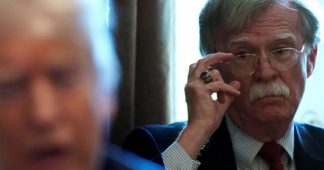 Ahead of proposed summit, North Korea rips Trump national…
Ahead of proposed summit, North Korea rips Trump national…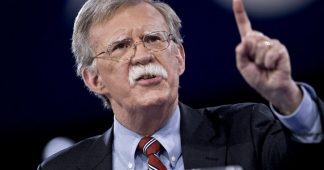 Neocon Bolton wants to torpedo the Korean rapprochement
Neocon Bolton wants to torpedo the Korean rapprochement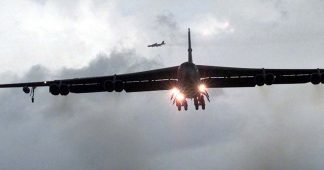 US Diverts Bombers From Korean Peninsula After DPRK Threat…
US Diverts Bombers From Korean Peninsula After DPRK Threat…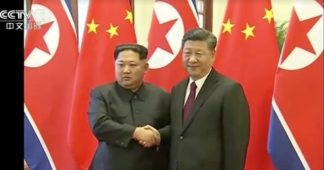 Kim Jong-un & Xi Jinping held talks in Beijing
Kim Jong-un & Xi Jinping held talks in Beijing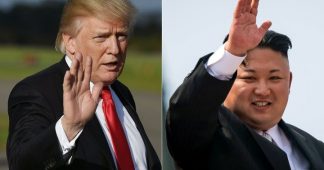 Trump’s secret diplomacy with North Korea
Trump’s secret diplomacy with North Korea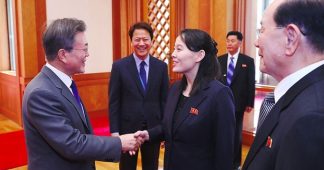 Winter Olympics 2018: North Korea invites South president to
Winter Olympics 2018: North Korea invites South president to





